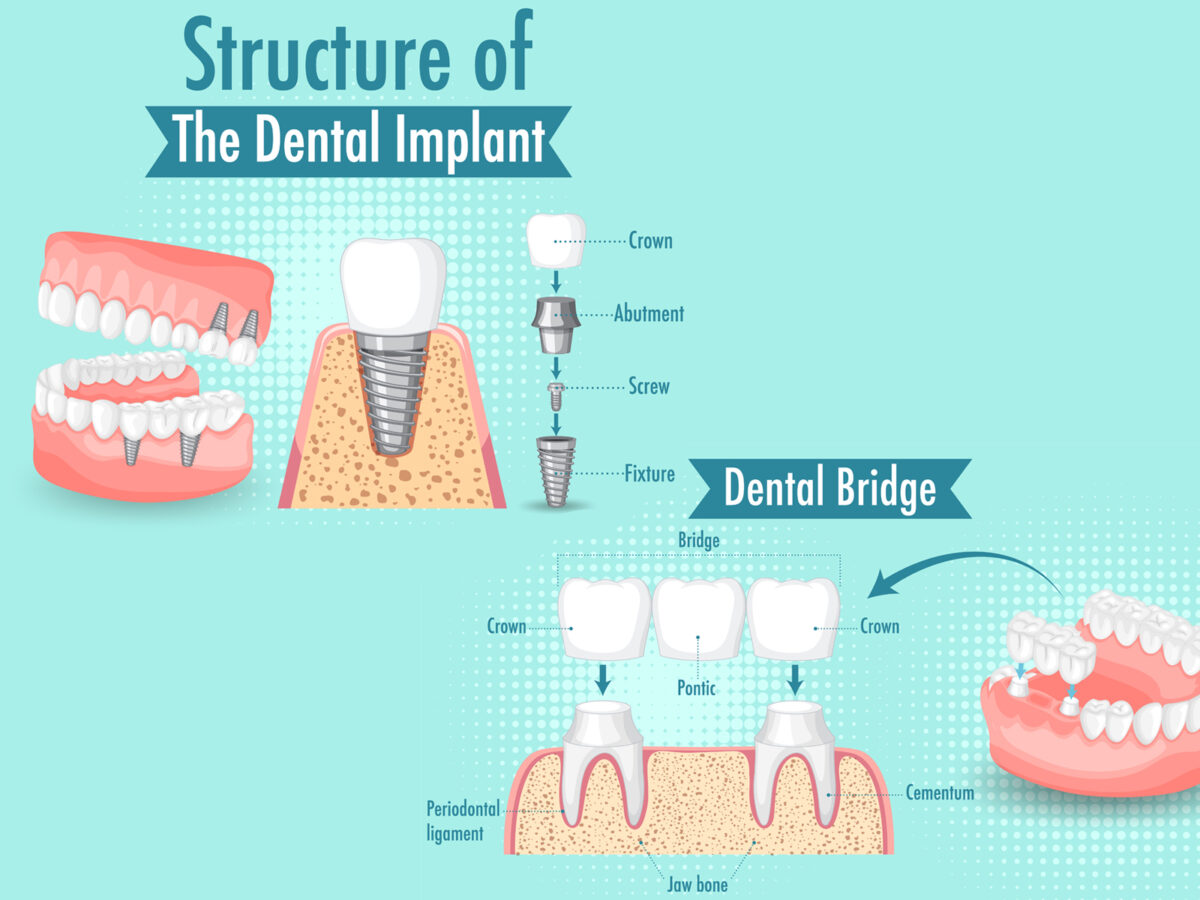River Walk Dental Orthodontics
Blog
Dental hygiene tips for healthy teeth & gums

What is the cost difference between dental bridges and implants?
The two most common methods of replacing missing teeth are implants and bridges. Even though both can be effective, there are differences in their costs. When deciding between implants vs oral bridges, understanding the cost difference will help you make an informed choice.
Dental Bridges
Dental bridges are prosthetic devices used for replacing one or more missing teeth. The bridge typically comprises two or more crowns attached to the natural teeth on either side of the gap, with an artificial tooth or teeth in between. Bridges can be made from various materials, including porcelain, metal, or both.
The cost of an oral bridge is affected by several factors, including the number of teeth being replaced, the materials used, and the dentist’s experience and location. A dental bridge can cost anywhere from $500 to $1,500 per tooth. Depending on the individual policy, oral health insurance may cover this cost in part or full.
Implants
A dental implant is a replacement for natural tooth roots that are surgically placed in the jawbone. They are typically made of titanium, a strong and durable metal well-tolerated by the body. A crown or bridge can be attached to the implant after it has been placed to replace a missing tooth or teeth.
The cost of dental implants is generally higher than that of oral bridges due in part to the more complex surgical procedure required. On average, a single tooth implant can cost anywhere from $1,000 to $4,000, and the total cost of a full implant-supported bridge can range from $3,000 to $25,000 or more, depending on the number of teeth being replaced, the materials used, and the dentist’s experience and location.
Factors that Affect Cost
Several factors can impact the cost of both dental bridges and implants. These include:
Materials: The materials used to create the bridge or implant can affect the cost. Porcelain, for example, is more expensive than metal but is more aesthetically pleasing and durable.
The number of teeth being replaced: The more teeth needing replacement, the higher the cost. A bridge that replaces two or three teeth will cost more than one that replaces just one tooth.
Location: The cost of fixing these oral prosthetics can vary depending on where you live. Dentists in larger cities or more affluent areas may charge more than those in rural or less affluent areas.
Experience of the dentist: Dentists with more experience may charge more for their services. However, they may also be able to offer better results and a higher level of care.
Does insurance cover this treatment?
Oral health insurance can help offset the cost of both dental bridges and implants. However, coverage can vary depending on the policy. Some policies may cover the entire cost of a bridge or implant, while others may cover only a portion. It’s essential to check with your insurance provider to understand what is covered and what your out-of-pocket expenses may be.
Some alternatives to bridges and implants
If cost is a concern, alternatives to traditional bridges and implants may be more affordable. These include:
Partial dentures: Partial dentures are removable prosthetic devices that can be used to replace one or more missing teeth. They are typically less expensive than bridges or implants, but they may not be as comfortable or as natural-looking.
Bonding or veneers: If you have only a tiny gap or a cosmetic issue with your teeth, bonding or veneers may be an option. These procedures can be less expensive than bridges or implants and can often be completed in a single visit to the dentist.
While bridges and implants can both be effective options for replacing missing teeth, there are differences in their cost. So, you must consult your dentist before making any decision.
